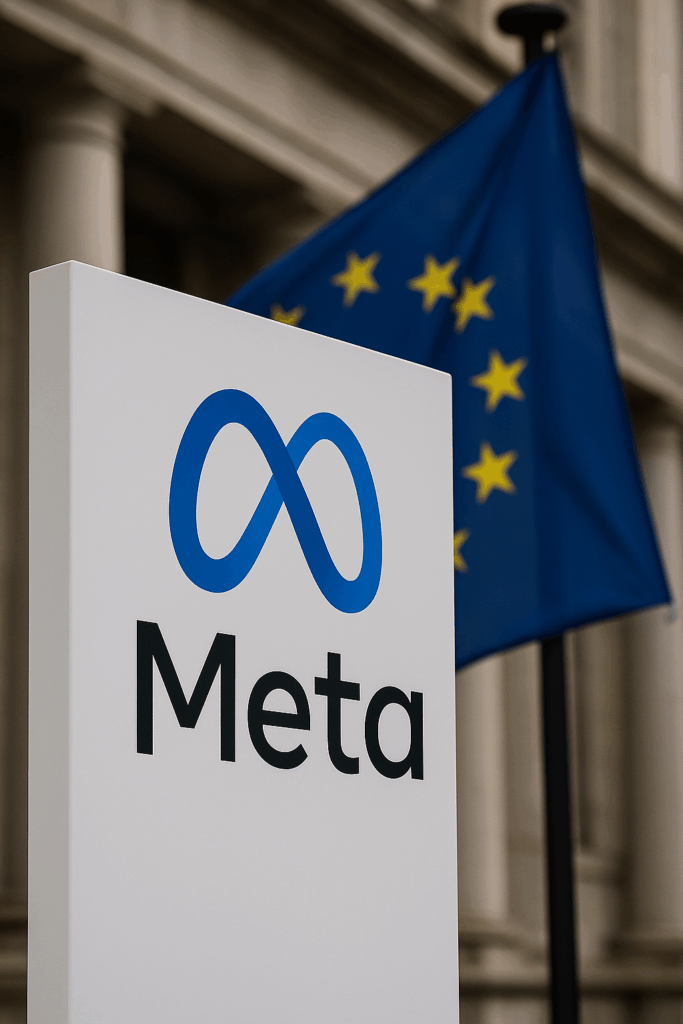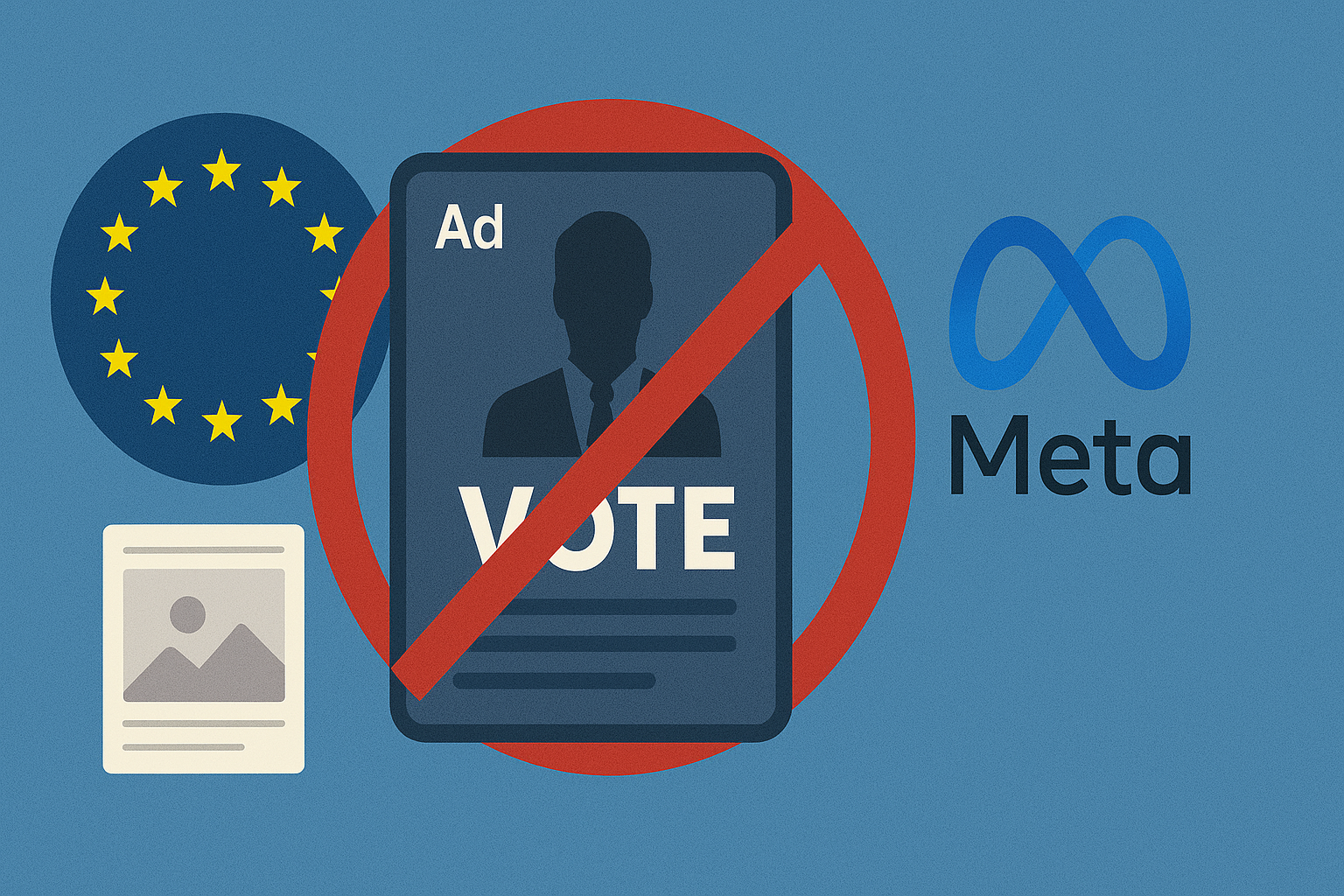Meta announces its ban on EU political ads, halting all political, election, and social issue advertising in the European Union starting October 2025. The decision follows the EU’s new Transparency and Targeting of Political Advertising (TTPA) regulation, which Meta describes as “unworkable” due to legal uncertainties and operational challenges. The act affects Meta’s platforms (Facebook, Instagram, Threads, and WhatsApp) and adds to growing tensions between tech and European regulators.
What’s Happening & Why This Matters
The EU’s TTPA came into force in April 2024 but became fully applicable on 10 October 2025. The law requires political ads to display transparency labels, disclose sponsors, link to elections, and provide information on payment amounts and targeting methods. These provisions aim to reduce election interference and misinformation.

Meta has maintained political ad transparency tools since 2018, including an advertiser authorisation process and a public ad library. However, with the Meta EU political ads ban, the company argues that the new TTPA rules introduce excessive complexity and legal risks for both advertisers and platforms operating in the EU. Meta warns that these burdens will reduce the number of relevant ads and limit political campaign outreach on its services.
Despite the advertising halt caused by the Meta EU political ads ban, Meta says users and candidates in the EU can still discuss politics on its platforms. Meta’s decision mirrors Google’s November 2024 ban on EU political ads, reflecting shared industry frustration with the regulations.
Alongside TTPA, the EU’s Digital Services Act (DSA) also targets illegal content and disinformation on platforms. The European Commission launched probes against Meta’s Facebook and Instagram in April 2024 for suspected breaches related to deceptive political ads and content moderation. These investigations remain ongoing.
Disinformation campaigns have affected multiple EU elections. Notably, Romania cancelled its December 2024 election amid foreign interference concerns linked to TikTok. Such incidents highlight the EU’s push to strengthen election integrity through laws like TTPA and DSA.
Meta’s ad halt in the EU signals a broader conflict between tech companies’ operational models and evolving European regulatory demands. Platform accountability, free political expression, and regulatory compliance remain a complex question.
TF Summary: What’s Next
Meta’s pause on political advertising in the EU reflects deep disagreements over regulatory feasibility and legal clarity caused by the Meta EU political ads ban. The company joins Google in pushing back against rules they see as too burdensome. This development will reshape political campaigning on major social platforms across Europe.
EU regulators continue to enforce new laws that enhance election transparency and combat disinformation. Further dialogue and adjustments may follow as policymakers and tech innovators navigate the social standard. The clash represents one battle in the war of political advertising, digital governance, and platform accountability.
— Text-to-Speech (TTS) provided by gspeech


